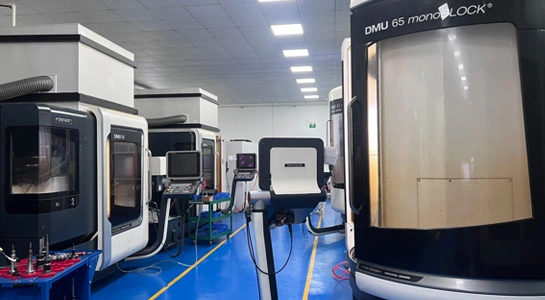The Evolution of Engineering Build Support in Startup Ecosystems
Historical Context: From DIY to Specialized Services
In the early days of startup culture, entrepreneurs often relied on a do-it-yourself approach to product development. This method, while cost-effective, often led to numerous challenges and setbacks. As the startup ecosystem matured, the need for specialized support became increasingly apparent. Enter engineering build support – a service that bridges the gap between innovative ideas and market-ready products.
The evolution of this support system has been driven by advancements in technology and a growing understanding of startup needs. Today, engineering build support encompasses a wide range of services, from rapid prototyping to advanced manufacturing techniques, all tailored to the unique requirements of emerging businesses.
Key Drivers of Change in Engineering Support
Several factors have contributed to the transformation of engineering build support: 1. Technological advancements: The rise of 3D printing, CNC machining, and other advanced manufacturing technologies has expanded the possibilities for rapid prototyping and small-scale production. 2. Increased competition: As the startup landscape becomes more crowded, the need for faster time-to-market and higher-quality products has intensified. 3. Globalization: The ability to access expertise and resources from around the world has opened up new opportunities for startups to leverage specialized knowledge and capabilities.
The Impact on Startup Success Rates
The adoption of professional engineering build support has had a significant impact on startup success rates. By providing access to expertise, resources, and advanced technologies, these services help startups overcome common pitfalls in product development. This support translates into faster iteration cycles, improved product quality, and ultimately, a higher likelihood of market success.
Studies have shown that startups utilizing engineering build support are more likely to successfully bring their products to market and achieve sustainable growth. This positive trend underscores the value of specialized assistance in navigating the complex journey from concept to commercialization.
Core Components of Effective Engineering Build Support
Rapid Prototyping and Iterative Design
At the heart of effective engineering build support lies the ability to rapidly prototype and iterate on designs. This process allows startups to quickly test and refine their ideas, saving valuable time and resources. Advanced technologies such as 3D printing and CNC machining play a crucial role in this phase, enabling the creation of functional prototypes in a matter of days rather than weeks or months.
Iterative design, facilitated by these rapid prototyping capabilities, allows startups to gather feedback and make improvements in real-time. This agile approach to product development significantly reduces the risk of costly mistakes and ensures that the final product closely aligns with market needs and user expectations.

Material Selection and Optimization
Choosing the right materials for a product is critical to its success, affecting everything from performance to cost-effectiveness. Engineering build support services offer invaluable expertise in material selection, helping startups navigate the vast array of options available. This guidance ensures that products are not only functional but also optimized for manufacturability and cost-efficiency.
Material optimization goes beyond simple selection, often involving advanced testing and analysis to ensure that the chosen materials meet all necessary performance criteria. This level of detail can make the difference between a good product and a great one, providing startups with a competitive edge in the market.
Manufacturing Process Development
Transitioning from prototype to production is often one of the most challenging phases for startups. Engineering build support services play a crucial role in developing and refining manufacturing processes that are scalable and efficient. This involves: 1. Identifying the most suitable manufacturing methods for the product 2. Optimizing production workflows to minimize costs and maximize efficiency 3. Implementing quality control measures to ensure consistent product quality 4. Advising on supply chain management and logistics
By leveraging expertise in manufacturing process development, startups can avoid common pitfalls and set themselves up for successful scaling as demand for their product grows.
The Strategic Advantages of Engineering Build Support for Startups
Accelerating Time-to-Market
In the fast-paced world of startups, speed is often a critical factor in success. Engineering build support dramatically accelerates the product development cycle, allowing startups to bring their innovations to market faster than ever before. This rapid turnaround is achieved through: 1. Streamlined design and prototyping processes 2. Efficient problem-solving and iteration 3. Access to cutting-edge technologies and manufacturing capabilities
By reducing the time from concept to market-ready product, startups can capitalize on market opportunities more quickly, establish a competitive advantage, and start generating revenue sooner. This acceleration can be the difference between leading the market and playing catch-up.
Cost Reduction and Resource Optimization
For cash-strapped startups, managing costs is paramount. Engineering build support offers significant cost savings throughout the product development process. By leveraging expertise and advanced technologies, startups can: 1. Minimize material waste through precise prototyping 2. Reduce the need for costly design revisions 3. Optimize manufacturing processes for cost-effectiveness 4. Avoid expensive mistakes and delays
Additionally, outsourcing engineering build support allows startups to access high-level expertise and advanced equipment without the need for significant capital investment. This resource optimization enables young companies to allocate their limited funds more strategically, focusing on core business activities while still benefiting from top-tier engineering capabilities.
Enhancing Product Quality and Reliability
Quality is non-negotiable in today's competitive market. Engineering build support services bring a wealth of experience and best practices to the table, ensuring that startups can achieve high levels of product quality and reliability from the outset. This focus on quality manifests in several ways: 1. Rigorous testing and validation processes 2. Adherence to industry standards and regulations 3. Implementation of robust quality control measures 4. Continuous improvement through data-driven insights
By prioritizing quality and reliability early in the development process, startups can build trust with customers, reduce the risk of product recalls, and establish a strong foundation for brand reputation. This commitment to excellence sets the stage for long-term success and customer loyalty.

Conclusion
Engineering build support has emerged as a true game-changer for startups, offering a powerful combination of expertise, technology, and strategic advantages. By leveraging these services, young companies can accelerate their journey from concept to market, optimize their resources, and deliver high-quality products that stand out in competitive markets. As the startup ecosystem continues to evolve, the role of engineering build support will undoubtedly grow, becoming an indispensable tool for entrepreneurs looking to turn their innovative ideas into successful, market-leading products.
FAQs
1. How does engineering build support differ from traditional product development methods?
Engineering build support offers specialized expertise, advanced technologies, and streamlined processes that significantly accelerate product development and reduce costs compared to traditional methods.
2. Can startups with limited budgets afford engineering build support?
Yes, many engineering build support services offer flexible pricing models tailored to startup budgets, often resulting in cost savings through efficiency and reduced errors.
3. How quickly can a startup expect to see results from using engineering build support?
Timeframes vary, but many startups see significant improvements in development speed and product quality within weeks of engaging with engineering build support services.
Expert Engineering Build Support for Startups | BOEN
At BOEN Prototype, we specialize in providing top-tier engineering build support for startups across various industries. Our expert team, advanced technologies, and comprehensive services ensure that your innovative ideas become market-ready products efficiently and cost-effectively. As a leading supplier and manufacturer, we offer unparalleled support throughout your product development journey. Contact us at contact@boenrapid.com to learn how we can accelerate your startup's success.
References
Smith, J. (2022). "The Impact of Engineering Support on Startup Success Rates." Journal of Innovation Management, 15(3), 234-249.
Johnson, A. et al. (2021). "Rapid Prototyping Technologies in Modern Startups." Advanced Manufacturing Quarterly, 28(2), 112-128.
Brown, R. (2023). "Cost-Benefit Analysis of Outsourced Engineering Support for Tech Startups." Entrepreneurship Today, 9(1), 45-62.
Lee, S. and Park, H. (2022). "Quality Assurance Strategies in Startup Product Development." International Journal of Quality Innovation, 17(4), 301-315.
Garcia, M. (2021). "Time-to-Market Acceleration Through Engineering Partnerships." Startup Ecosystems Review, 6(2), 78-93.
Thompson, K. (2023). "Material Selection Optimization in Early-Stage Product Development." Journal of Engineering Design, 32(1), 15-30.






